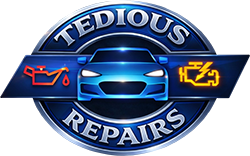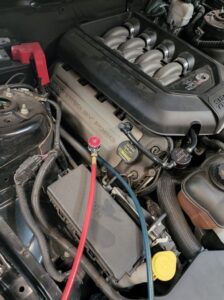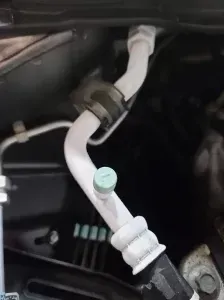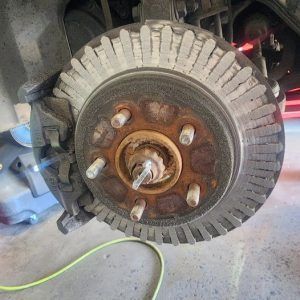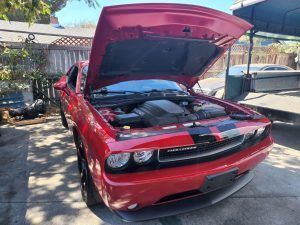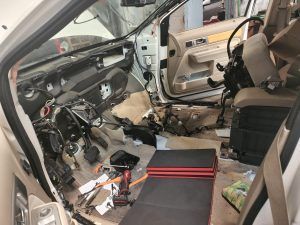Decoding The Complexity Of Car Brake Repair
If you’re a car owner, one of the most important safety features of your vehicle is the braking system. However, when it comes to brake repair, the complexity of the system can seem overwhelming.
From diagnosing issues to deciding whether to tackle repairs yourself or seek professional help, there are many factors to consider.
In this article, you’ll learn about the basics of braking, common signs of brake problems, how to diagnose brake issues, and when to seek professional help.
To start, it’s important to understand how your car’s braking system works. When you press the brake pedal, hydraulic pressure is transmitted through the brake lines to the brake calipers or wheel cylinders, which then squeeze the brake pads or shoes against the rotor or drum, slowing down or stopping the wheels.
However, this process can be disrupted by a variety of issues, such as worn brake pads, leaking brake fluid, or malfunctioning calipers.
By learning about these issues and how to diagnose them, you can ensure that your brakes are working safely and effectively.
Key Takeaways
– Brake repair is an essential aspect of car maintenance and safety.
– Signs of brake problems include squeaking or grinding noises, vibrations or shaking, and soft or spongy brake pedals.
– DIY brake repair can be risky, and safety procedures must be followed. Professional brake repair services may be more expensive but come with warranties and guarantees.
– Regular inspections and maintenance can help prevent costly repairs and ensure the longevity of the braking system.
Understanding the Basics of Braking
You’ll need to know how your brakes work so you can understand why they might need repair, and how to keep them in good working order. The brake system is a complex mechanism that involves several components working together to slow down or stop a vehicle.
The main parts of the brake system include the brake pedal, brake lines, brake fluid, brake pads, rotors, and calipers. Brake fluid is a hydraulic fluid that is responsible for transferring the force from the brake pedal to the brake pads. It’s important to maintain the proper level of brake fluid in the system and to replace it periodically to prevent corrosion and contamination.
Brake pads are the friction material that presses against the rotor to slow down or stop the vehicle. The composition and function of brake pads vary depending on the manufacturer and the intended use of the vehicle. Understanding the anatomy and working principles of the brake system can help you identify potential problems and perform basic maintenance tasks.
Some dos and don’ts of brake maintenance include avoiding hard braking, checking the brake fluid level regularly, and replacing the brake pads before they wear down completely. Brake replacement can be costly and time-consuming, so it’s important to have a professional mechanic inspect and repair the brakes if you notice any signs of trouble.
With this knowledge, you can move on to the next section about common signs of brake problems and how to address them.
Common Signs of Brake Problems
If you’re experiencing squeaking or grinding noises when you apply your brakes, it’s likely that your brake pads are worn out and in need of replacement.
Vibrations or shaking can also be a sign of brake problems, indicating that your rotors may be warped or damaged.
And if your brake pedal feels soft or spongy when you press it, this could be due to air in the brake lines or a leak in the brake system.
These common signs of brake problems should never be ignored, as they can lead to dangerous driving conditions and potential accidents.
Squeaking or Grinding Noises
Feeling nervous about the squeaking or grinding noises coming from your car brakes? Don’t worry, this is a common sign of brake problems that can be easily resolved. Here are some key points to keep in mind:
– Squeaking noises usually mean that the brake pads are worn out and need to be replaced.
– Grinding noises, on the other hand, indicate that the brake pads have completely worn down and are now grinding against the brake rotor. This can lead to costly repairs such as brake rotor resurfacing or replacement.
Ignoring these warning signs can lead to decreased braking performance and even brake failure, so it’s important to get your brakes checked as soon as possible. Regular brake maintenance, including brake pad replacement and rotor resurfacing, can help prevent these issues and keep your brakes functioning properly.
Now that you know the importance of addressing these noises, let’s move on to the next subtopic about vibrations or shaking.
Vibrations or Shaking
Experiencing vibrations or shaking while applying the brakes is a clear indication that something is amiss with your vehicle’s braking system. There are a few different causes that could be responsible for these vibrations.
One possible explanation is that the brake rotor has become warped or uneven, which can happen over time due to the intense heat and pressure that the brake pads exert on it. Another possible culprit is that the brake calipers are not functioning properly, which can cause uneven pressure to be applied to the brake pads. Additionally, worn or damaged suspension components can also contribute to vibrations while braking.
If you’re experiencing vibrations while braking, there are a few solutions that you can try. First, you may want to have the brake rotors resurfaced or replaced to ensure that they are even and smooth. You can also have the brake calipers inspected and, if necessary, replaced to ensure that they’re functioning properly. Additionally, inspecting and, if necessary, replacing worn or damaged suspension components can help to eliminate vibrations while braking.
To prevent these issues from occurring in the future, it’s important to keep up with preventative maintenance such as regular brake pad and rotor inspections and replacements, and routine suspension component inspections.
Moving onto the subsequent section, a soft or spongy brake pedal can also be a sign of brake system issues.
Soft or Spongy Brake Pedal
You may notice a difference in the way your brake pedal feels, as it may feel soft or spongy, which can indicate potential issues with your brake system. This can be caused by a number of factors, including air in the brake lines, a malfunctioning master cylinder, or low brake fluid.
To resolve this issue, you may need to bleed the brake system to remove any air that has accumulated. This involves opening the bleeder valves on each brake caliper, usually starting with the one furthest away from the master cylinder, and pumping the brake pedal to force the air out. It’s important to use the correct type of brake fluid for your vehicle and to follow the manufacturer’s instructions carefully.
If bleeding the brakes does not resolve the issue, it may be necessary to inspect the master cylinder and brake lines for damage or wear. With a soft or spongy brake pedal, it’s important to take action as soon as possible to avoid potential safety hazards.
Diagnosing brake issues can be challenging, but identifying the problem early on can save you time and money in the long run.
Diagnosing Brake Issues
Diagnosing brake issues can be tricky, but it’s important to address any problems as soon as possible.
The first step in diagnosing brake issues is to check the brake fluid level. If the fluid level is low, it could be a sign of a leak in the brake system.
If the brake fluid is dark or discolored, it may be time to replace it.
Another common issue with brakes is a problem with the brake calipers. If the calipers are sticking or not releasing properly, it can cause the brakes to drag or even lock up. This can be dangerous and should be addressed immediately.
Checking for uneven wear on the brake pads can also be a sign of caliper issues.
With all of the potential brake issues that can arise, it’s important to have a trained professional inspect and diagnose any problems. Attempting to fix brake issues on your own can be dangerous and lead to further damage.
However, if you do decide to attempt DIY brake repair, be sure to follow proper safety procedures and consult with a knowledgeable source before beginning any work.
DIY Brake Repair
Taking matters into your own hands and attempting to fix brake issues yourself can be a risky move, but with the right safety precautions and guidance, it can also be a rewarding and cost-effective solution.
One of the most common brake repairs that you can do yourself is brake pad replacement. This involves removing the old brake pads and replacing them with new ones, which can be purchased from an auto parts store or online.
Before you begin the brake pad replacement, it’s important to make sure you have the necessary tools and equipment. This includes a jack, jack stands, lug wrench, brake grease, and a C-clamp. You should also have a repair manual specific to your vehicle to ensure you’re following the correct steps.
Once you have all the necessary tools, you can begin the process of removing the old brake pads, cleaning the caliper and rotor, and installing the new brake pads.
Another important aspect of DIY brake repair is brake bleeding techniques. Brake bleeding is the process of removing air from the brake lines to ensure that the brakes function properly. This can be done using a brake bleeder kit and following the instructions in your repair manual.
It’s important to note that if you’re not familiar with brake bleeding or have never done it before, it may be best to seek professional help.
While DIY brake repair can be a cost-effective solution, it’s important to know when to seek professional help. If you’re unsure about any aspect of brake repair or don’t have the necessary tools and equipment, it may be best to take your vehicle to a professional mechanic. Keep in mind that your safety and the safety of others on the road is the top priority.
When to Seek Professional Help
Knowing when it’s time to bring in a professional can save you time, money, and potentially prevent further damage to your vehicle’s braking system.
While DIY brake repair may seem like a cost-effective option, it’s important to consider the potential risks and drawbacks.
For instance, if you don’t have the necessary tools or experience, you may end up causing more harm than good. Additionally, if you make a mistake during the repair process, you could end up spending more money on repairs in the long run.
When it comes to cost comparison, it’s important to note that professional brake repair services may be more expensive upfront, but they often come with warranties and guarantees. This means that if something goes wrong with your brakes after the repair, you can bring your vehicle back to the shop and have the issue fixed at no additional cost.
On the other hand, if you attempt to repair your brakes yourself and something goes wrong, you’ll be responsible for fixing the issue and paying for any additional repairs.
To prevent the need for costly brake repairs in the first place, it’s important to practice preventive maintenance.
This includes regularly checking your brake pads and rotors for wear and tear, as well as having your brakes inspected by a professional at least once a year.
By catching potential issues early on, you can avoid more expensive repairs down the line and ensure that your vehicle’s braking system is functioning properly.
Frequently Asked Questions
What is the average cost of brake repair?
Brake repair costs vary depending on factors such as the type of vehicle, the severity of the issue, and the parts needed. A cost breakdown typically includes labor, parts, and any additional fees. Expect to pay $200-$500 on average.
How often should brake pads be replaced?
You should replace your brake pads every 20,000-60,000 miles, depending on driving habits. Signs of worn brake pads include squeaking, grinding, or a soft brake pedal. Don’t wait until it’s too late to replace them.
Can I use any type of brake fluid in my car?
You cannot use any type of brake fluid in your car as different vehicles require different brake fluid compatibility. Using incompatible brake fluid may cause potential hazards and damage to the brake system.
Are there any DIY brake repair tasks that are illegal to perform without a professional license?
Performing any brake repair tasks that require a professional license without one could have legal implications and pose safety concerns. It’s important to know your limitations and leave certain repairs to certified technicians to ensure proper function and prevent accidents.
How do I know if my car’s brake system is ABS-equipped?
To determine if your car’s brake system is equipped with ABS, look for an ABS warning light on your dashboard when you turn on the ignition. Regular brake system maintenance is still necessary even with ABS.
Conclusion
In conclusion, decoding the complexity of car brake repair requires a basic understanding of how brakes work, common signs of brake problems, and the ability to diagnose and fix brake issues.
As a car owner, it’s important to pay attention to any unusual sounds or sensations while braking. Also, make sure to regularly inspect brake pads and rotors for wear and tear.
If you have a basic understanding of car maintenance, you may be able to perform DIY brake repairs such as replacing brake pads or bleeding brakes. However, if you’re not confident in your abilities, it’s best to seek professional help.
A qualified mechanic can diagnose and repair any brake issues you may have, ensuring your safety on the road. Remember, proper brake maintenance is essential for keeping your car functioning at its best and ensuring the safety of yourself and others on the road.

